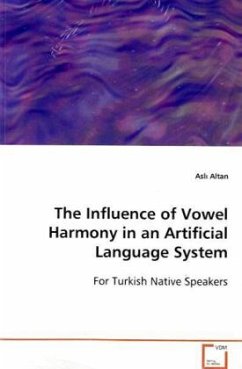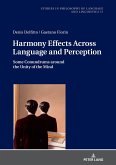I elicited speech errors by experiments and analysed
them to see what they reveal about vowel harmony
(VH). The basic question is whether VH helps Turkish
speakers to learn an artificial language system. The
question of whether the subjects learned VH was
tested in three ways: first, the diversity and
quantity of their speech errors; second, by the test
phase and third by analyzing the words subjects
remembered. The results revealed that subjects
preserved the system they were trained on even in
their speech errors. There were certain
patterns in the speech errors of both harmony and
disharmony subjects. This underlies the finding that
as long as there is a pattern (whether harmony or
disharmony) in the artificial language system,
subjects were able to learn it. The backness/rounding
harmony subjects were more successful than other
groups. It was observed that height harmony was more
difficult for Turkish subjects compared to
backness/rounding harmony. But the results of the
mixed condition subjects reveal that even vowel
disharmony was easier than a lack of pattern. The
results point out to the fact that VH is a property
that facilitates both production and perception.
them to see what they reveal about vowel harmony
(VH). The basic question is whether VH helps Turkish
speakers to learn an artificial language system. The
question of whether the subjects learned VH was
tested in three ways: first, the diversity and
quantity of their speech errors; second, by the test
phase and third by analyzing the words subjects
remembered. The results revealed that subjects
preserved the system they were trained on even in
their speech errors. There were certain
patterns in the speech errors of both harmony and
disharmony subjects. This underlies the finding that
as long as there is a pattern (whether harmony or
disharmony) in the artificial language system,
subjects were able to learn it. The backness/rounding
harmony subjects were more successful than other
groups. It was observed that height harmony was more
difficult for Turkish subjects compared to
backness/rounding harmony. But the results of the
mixed condition subjects reveal that even vowel
disharmony was easier than a lack of pattern. The
results point out to the fact that VH is a property
that facilitates both production and perception.








